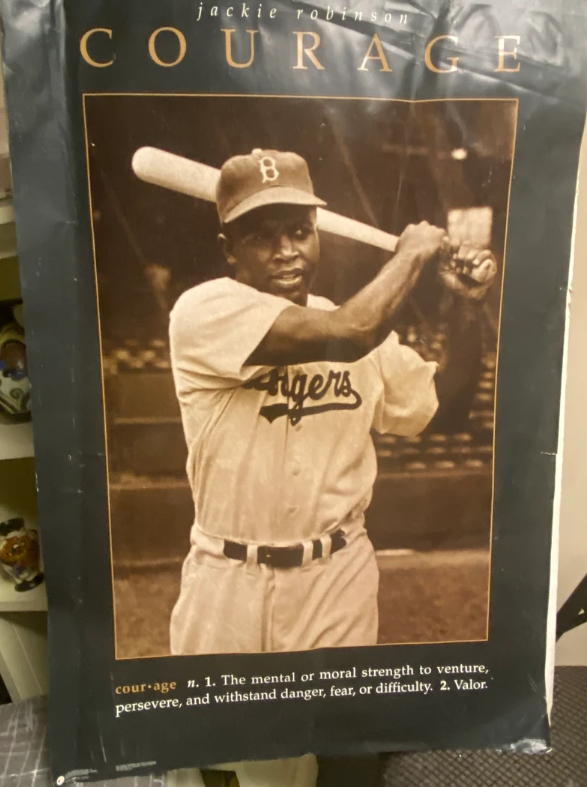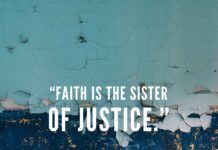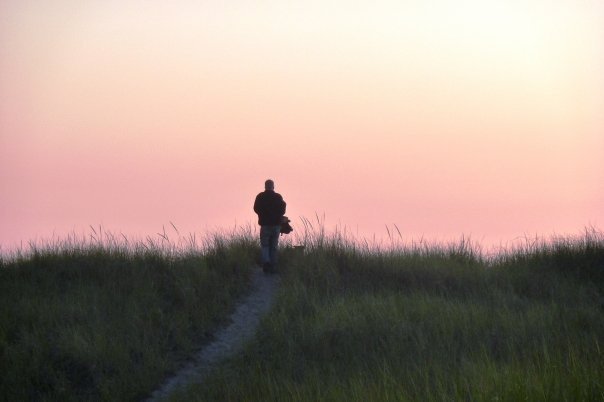The first time I stood in front of a jury, in a large superior courtroom in Spokane County, I was a younger lawyer with more energy than eloquence, more ambition than experience. I’ll never forget the feeling as if my legs might give out and collapse as easily as the accordion files in my briefcase. My mouth remained as dry as a desert while my heart felt like an anchor sinking into the depths of anxious uncertainty. The butterflies in my stomach morphed into frantic bees buzzing into my brain in a swarm of colliding thoughts. I had prepared, practiced, prayed, asked others to critique me, and practiced some more.
The only people gazing back at me that Monday morning were the jurors summoned to be there, but I might as well have been addressing crowds in a stadium on that first momentous occasion. Momentous, not necessarily for those in attendance – although I hoped they received some empowerment that day – but momentous because I pushed through my fears. I refused to let my nerves rule my rhetoric and my doubts sabotage my message. I’m sure I stuttered, stammered, paused, and lost my place in the mental outline I had memorized so diligently and the notes I had written so carefully.
But like David confronting Goliath, I loaded my words into the slingshot sensing that what I was doing might be part of something bigger than myself. I gave voice to an injured father, along with expressions and ideas larger than myself and my understanding of this world. It was far from perfect, but it was a small victory that has had enormous consequences in my life. Since then, I have done trials with righteous verdicts and settlements, and spoken on stages to current and aspiring lawyers, but none of those occasions would have occurred if I had never stood in that courtroom as a young lawyer determined to do my part towards seeing some measure of justice in this world for someone.
Whether you are a lawyer or not, it can be a frightening experience to put your thoughts and words out into the world. Yet fear must never be the obstacle that blocks your development, growth, and maturity in communicating with people. Fear of failing, fear of succeeding, fear of what others will think, fear of what your father will think, fear of making a fool of yourself, fear of being misunderstood, criticized, and taken out of context – as with any area of personal growth, fear is likely to be part of the equation.
I still feel it in the pit of my stomach whenever I stand up in the courtroom to begin an argument. I feel it whenever I begin with cross-examination of an important expert witness who is armed with greater knowledge of the subject than I. Will I fail? Will I be seen as incompetent? How do I dare question him? Will I slink out of that courtroom, the jury watching, witnessing my shame, my opponents laughing, mocking my misery?
Fear is unpleasant. We hate its companionship. Yet it challenges us. It energizes the senses. We suddenly become alert. Fear is friend and foe alike, adversary and ally. Perhaps that is why my father for as long as I can remember hung a single definition in his office next to a photo of Jackie Robinson. It read: “cour • age n. 1. The mental or moral strength to venture, persevere, and withstand danger, fear, or difficulty. 2. Valor.” Jackie Robinson was courageous.
One cannot be brave without fear, for is not our bravery merely the facing of our fears? How brave is the solider who does not understand the danger he charges? How brave is the madman? The fool? Who is more brave — the small boy on stage singing his first solo before his Sunday school class, or the great artist singing at the downtown Opera?

“Courage is not the absence of fear, but acting in spite of it.”
Whether we wish to acknowledge it or not, fear visits all of us. We must not to be ashamed that we have fear, but embrace it. Owning your fear is the first step in facing it, and facing it to overcoming it.
Part of my fear derives from the thought of seeing a jury carry out an injustice because I did not do enough to bring forth the truth. I carry the weight that accompanies standing up for the lot of others because I know great trial attorneys can and do lose merit-worthy cases. Although that has not happened to me, I have seen it happen. I have seen the faces of innocent people maimed or who have lost a family member as the judge reads out a losing verdict; their eyes locked onto an inanimate object as if to ground them as they swallow the sullen finality that justice long delayed will in fact never be delivered.
Fear is the unpleasant affirmation that we are mortal human beings. Fear though confirms that it is life, not death, that is the authority within us. It means we are still alive and that we still care! The dead are not afraid. Once we have embraced our living fear, once we have felt it, accepted it, we realize life is not a rehearsal. Each moment we have stands in a category all by itself to be lived, to be savored, to be enjoyed, before it dissipates to live in our memory bank and until our memories, too, are gone. When we give ourselves permission to speak the truth despite our fear, the authority within ourselves bursts out of our lungs, out of our throats, our words formed and pressed out of our lips, words born out of our hearts.
Is not my role as a trial lawyer to help create a safe environment for people to speak the truth? To do so, I must understand and appreciate what has happened to you and your family. Not just of the incident, or of the pain, but also of the mourning and the grief, the altered quality of life, the frustration and the inadequacy of it all.
These things can be uncomfortable for people to talk about. But we do a disservice to the justice system if we neglect this aspect of our role. No one can understand a story they have blocked out or never listened to. We cannot shut the truth out because of our discomfort of looking at its victims, and then go home at night telling ourselves the justice system realized its full potential. Justice requires that officers of the court listen, and bear witness.
To be authentic and real in front of your community can be frightening, but it’s the only way to real justice. Sometimes the outcome of trial is altered in just 20 seconds. Twenty seconds of raw truth from the witness stand that tells us everything we need to know, and the room shifts on its axis.
The truth is not usually loud, when it can be found in the still small voice of a widow or in the soft gentle whisper of a child. Indeed, wisdom rarely imparts itself from society’s highest places, and the most poignant statements throughout history so often came from the most unexpected people.
David did not seek out the fight with Goliath. Goliath taunted and trolled, trash-talked and terrorized everything sacred to David. Goliath blocked, belittled and bullied others using his size and might, so confident in his immense stature that no one who opposed him could stand up to his abuse of power or position. Goliath used his authority to mock and intimidate. Which is why David despite his youth, inexperience, and lack of proper equipment, knew he had to speak up and step forward.
Ignoring a bully is sometimes the better part of wisdom, but some occasions demand that we speak up and express the undiluted truth of an injustice that has transpired or make known the heinous offense perpetrated by those in authority.
You see, giants still exist today.
I hope you never have to face a ten-foot giant blocking your path, but if you do, what matters most is not the absence of fear. When people speak out, there will always be others that misinterpret their motives. Passion and conviction will always make some people uncomfortable. But when you know the true motives you must not be deterred. Be yourself. Be real. Be true to who you are, where you came from, and what you know, and deliver the message only you can deliver.
















